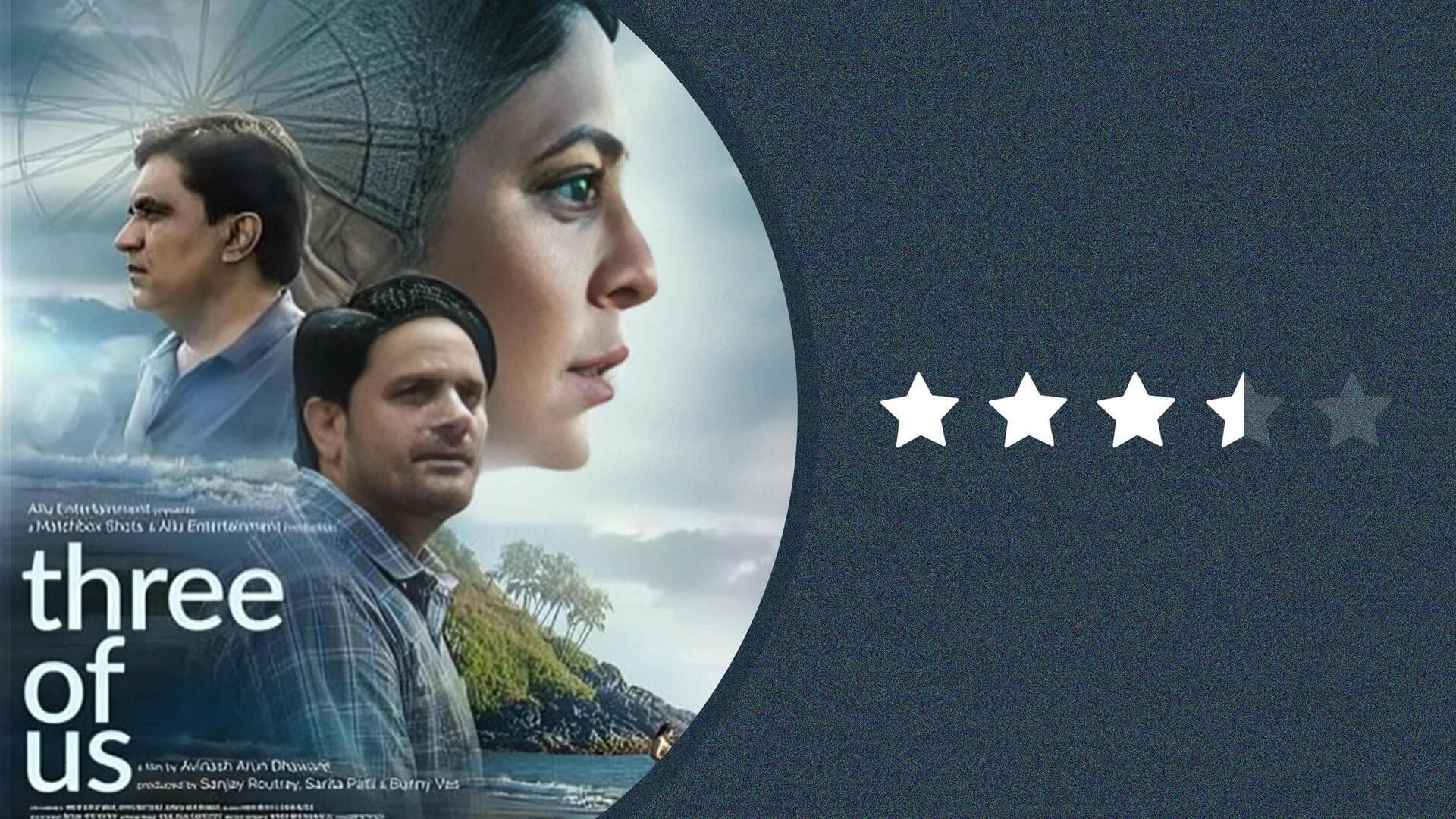
'Three of Us' review: Splendid meditation on grief, love, nostalgia
What's the story
Avinash Arun's Three of Us is a warm, measured, poetic film that makes you well up in more than one place. It's an homage to the time gone by and a reminder of our efforts to somehow hold on to the moments frozen in time. Headlined by first-rate performances by Jaideep Ahlawat, Swanand Kirkire, and Shefali Shah, it is melancholic, nostalgic, and profoundly lyrical.
Plot
Plot of 'Three of Us'
The tightly wound narrative focuses on Shailaja (Shah), a woman suffering from early-onset dementia, living in Mumbai with her husband, Dipankar (Kirkire). Shailaja is aware that she is tragically living on borrowed time, so she decides to go back to her native town, revisit her school, and meet her childhood sweetheart Pradeep (Ahlawat). This journey eventually becomes a gaze inward for all of them.
#1
Shailaja's identity and journey back home
Three of Us is a film of melancholy and memories. Shailaja's ache to hold on to the fleeting moments of her life is conspicuous and her week-long journey back "home" is a way of finding herself again. Without unnecessary, overripe melodrama, TOU focuses on hard, cold, devastating facts: What if Shailja forgets her son? Her husband? What is her identity, if any at all?
#2
More on her character
It's tough to not warm up to Shailaja, whose life is a ticking timebomb—she can begin forgetting even the most basic details anytime. The journey, thus, is an endeavor to find herself before she loses herself entirely. Being a step closer to her childhood helps us find meaning in the past and process ongoing grief while experiencing a week painted with strokes of nostalgia.
#3
Treatment of her dementia in 'Three of Us'
Shailaja's condition is not unloaded upon us in the first frame—it's built up gradually to let it reach a natural effect. For instance, her colleague has to call her name out twice, and she keeps her diary close at all times—it's a manual that re-teaches her to live. In some sequences, we see her silhouette and shadows—despite being surrounded by people, she's always alone.
#4
What does Pradeep mean to 'Three of Us'?
Ahlawat, as Pradeep, is the axis of the wheel. From the way he watches his words in front of Dipankar to the way his lips quiver while speaking about his past to his measured, mature approach toward a woman he once loved—it is a character I will remember for a long time. He becomes Shailaja's companion in processing their shared, heartache-shaped, palpable grief.
#5
Watch out for this scene
My eyes almost welled up at a conversation Pradeep and Shailaja have on a Ferris wheel. Like a lot of other things, it is also a relic of their shared past—they have, after all, weaved magic and memories atop it. One's disease becomes another's grief; there are unsaid promises made between them as they nestle in the comfort they draw from one another.
#6
More on this conversation
This conversation also remains heartfelt and tugs at your heartstrings because you know what's about to transpire (even if you don't see that on the screen). Shailaja will move back to Mumbai, dementia will catch up with her, and eventually, she will forget Pradeep, but he will forever remember her. It's a sweet, charming ode to childhood love—do we ever stop loving someone, anyway?
#7
About motifs it employs
I have a lot of love for the motifs of TOU: Shailaja-Dipankar travel to the town via train, and trains are important metaphors because they mark both beginnings and endings. The Ferris wheel, Shailaja-Dipankar hopping from one place to another in her native town, and the constant reverberation of calling their son back from college—life is about slowing down, but also about constantly moving.
#8
Watch it on Netflix right away!
Three of Us is heavy with emotions and is laced with gorgeous dialogues and poems, which further accentuate its profundity. A film about both holding on and letting go, Three of Us is an acquired taste that grows on you as the film progresses and finds its pacing. A scene in the climax shows the Ferris wheel moving—despite everything, life goes on. 3.5/5 stars.